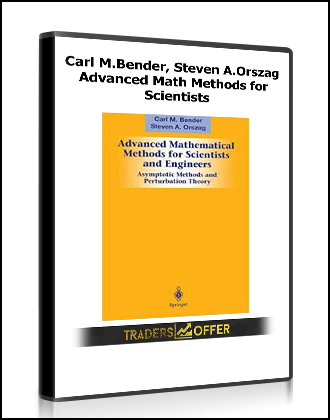
Carl M.Bender, Steven A.Orszag – Advanced Math Methods for Scientists
Price: $25
Please contact us: – Email: Tradersoffer@gmail -Skype: [email protected]
Carl M.Bender, Steven A.Orszag – Advanced Math Methods for Scientists
A clear, practical and self-contained presentation of the methods of asymptotics and perturbation theory for obtaining approximate analytical solutions to differential and difference equations. Aimed at teaching the most useful insights in approaching new problems, the text avoids special methods and tricks that only work for particular problems. Intended for graduates and advanced undergraduates, it assumes only a limited familiarity with differential equations and complex variables. The presentation begins with a review of differential and difference equations, then develops local asymptotic methods for such equations, and explains perturbation and summation theory before concluding with an exposition of global asymptotic methods. Emphasizing applications, the discussion stresses care rather than rigor and relies on many well-chosen examples to teach readers how an applied mathematician tackles problems. There are 190 computer-generated plots and tables comparing approximate and exact solutions, over 600 problems of varying levels of difficulty, and an appendix summarizing the properties of special functions.
The triumphant vindication of bold theories-are these not the pride and justification of our life’s work? -Sherlock Holmes, The Valley of Fear Sir Arthur Conan Doyle The main purpose of our book is to present and explain mathematical methods for obtaining approximate analytical solutions to differential and difference equations that cannot be solved exactly. Our objective is to help young and also establiShed scientists and engineers to build the skills necessary to analyze equations that they encounter in their work. Our presentation is aimed at developing the insights and techniques that are most useful for attacking new problems. We do not emphasize special methods and tricks which work only for the classical transcendental functions; we do not dwell on equations whose exact solutions are known. The mathematical methods discussed in this book are known collectively as asymptotic and perturbative analysis. These are the most useful and powerful methods for finding approximate solutions to equations, but they are difficult to justify rigorously. Thus, we concentrate on the most fruitful aspect of applied analysis; namely, obtaining the answer. We stress care but not rigor. To explain our approach, we compare our goals with those of a freshman calculus course. A beginning calculus course is considered successful if the students have learned how to solve problems using calculus.
